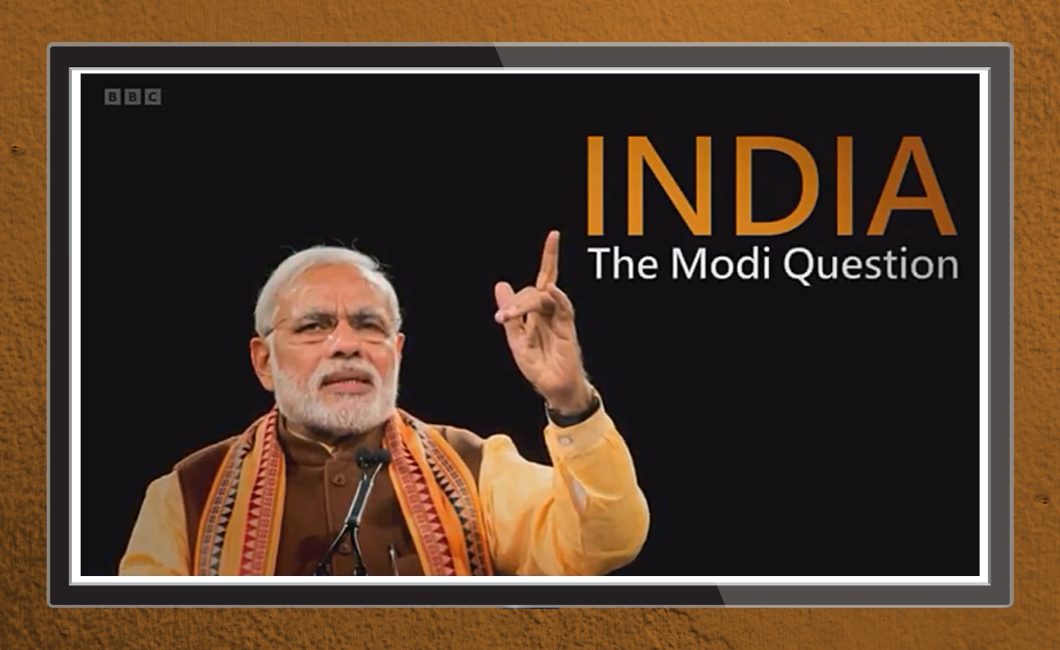Indian tax officials raid BBC offices after Modi documentary broadcast
Indian tax officials have raided the BBC’s offices in New Delhi and Mumbai in a clear act of retribution for the BBC’s recently broadcasted documentary, which takes a critical look at Prime Minister Narendra Modi’s role in the 2002 anti-Muslim maccacres in Gujarat state.
The authoritarian raids come just weeks after the Indian government used “emergency powers” to block the documentary from airing in the country, as part of a wider crackdown on all criticisms against Modi and the ruling Hindu supremacist Bharatiya Janata Party (BJP).
While a BBC spokesperson has stated that the media outlet is “fully cooperating” with authorities, opposition leaders and activists alike have slammed the government for its clear attack on freedom of speech.
Amnesty International India has slammed the government for “trying to harass and intimidate the BBC over its critical coverage of the ruling Bharatiya Janata Party.”
The Editors Guild of India, a non-profit group which promotes press freedom, said in a statement that the raids are a “continuation of a trend of using government agencies to intimidate and harass press organizations that are critical… of the ruling establishment.”
The Modi regime has repeatedly weaponized tax authorities against critics of the government and Hindu supremacism. In 2020, Amnesty International was forced to shut its India offices after similar raids, while the Editor’s Guild of India and Oxfam have also been subjected to searches. Journalists who report on atrocities committed by the government and its supporters face the threat of extreme harassment, imprisonment, fines, and death.
Hindu supremacist students violently attack organizers of college event
Hindu supremacist students belonging to the student wing of the paramilitary organization Rashtriya Swayamsevak Sangh (RSS) were arrested for violently beating two people who had helped organize an event about the Indian constitution at a college in Odisha state.
The extremists were part of a larger mob who attended the event to verbally harass the speakers. Claiming that the event was “anti-national,” the extremists violently attacked Surendra Jena, a teacher, and Pradipta Nayak, one of the event organizers.
“They beat me mercilessly,” said Nayak, whose shoulder, eye, and finger are now in constant pain. “The police had to rescue us from their clutches.”
The Hindu supremacists had taken offense to a talk given by economics professor Surajit Mazumdar, who had spoken about Dalit rights activist and intellectual B.R. Ambedkar in relation to the constitution.
“There was nothing unconstitutional in what I said. I quoted only from the constitution, and from B.R. Ambedkar… It was clearly a planned attempt to disturb the meeting,” said Mazumdar.
Only two of the Hindu supremacists were arrested for the attack.
Former prisoner of conscience Siddique Kappan details prison abuse
Muslim journalist Siddique Kappan, who was recently released from prison after being targeted for his religious identity and detained under India’s draconian anti-terror law in 2020, has spoken out about the abuse he faced while imprisoned.
Kappan was arrested in October 2020 while traveling to the Hathras region of Uttar Pradesh to cover the rape and murder of a teenage Dalit girl by caste-privileged Hindu men. Due to his Muslim identity, Kappan was charged under India’s draconian anti-terror laws and remained in jail for 28 months amid global outrage.
Kappan has stated that his arrest was the “perfect distraction” from the gang rape of a Dalit woman by Hindu men, which had sparked global outrage.
Despite the flimsiness of the case against him, Kappan was labeled a “terrorist” and was told that he would be treated as one by a prison official.
His abuse in prison included inhumane conditions that led him to contract Covid-19, being handcuffed to a hospital bed, and not being allowed to use the toilet for five days straight.
However, Kappan has stated that he will not stop his work as a journalist despite the continued threat of harassment.




